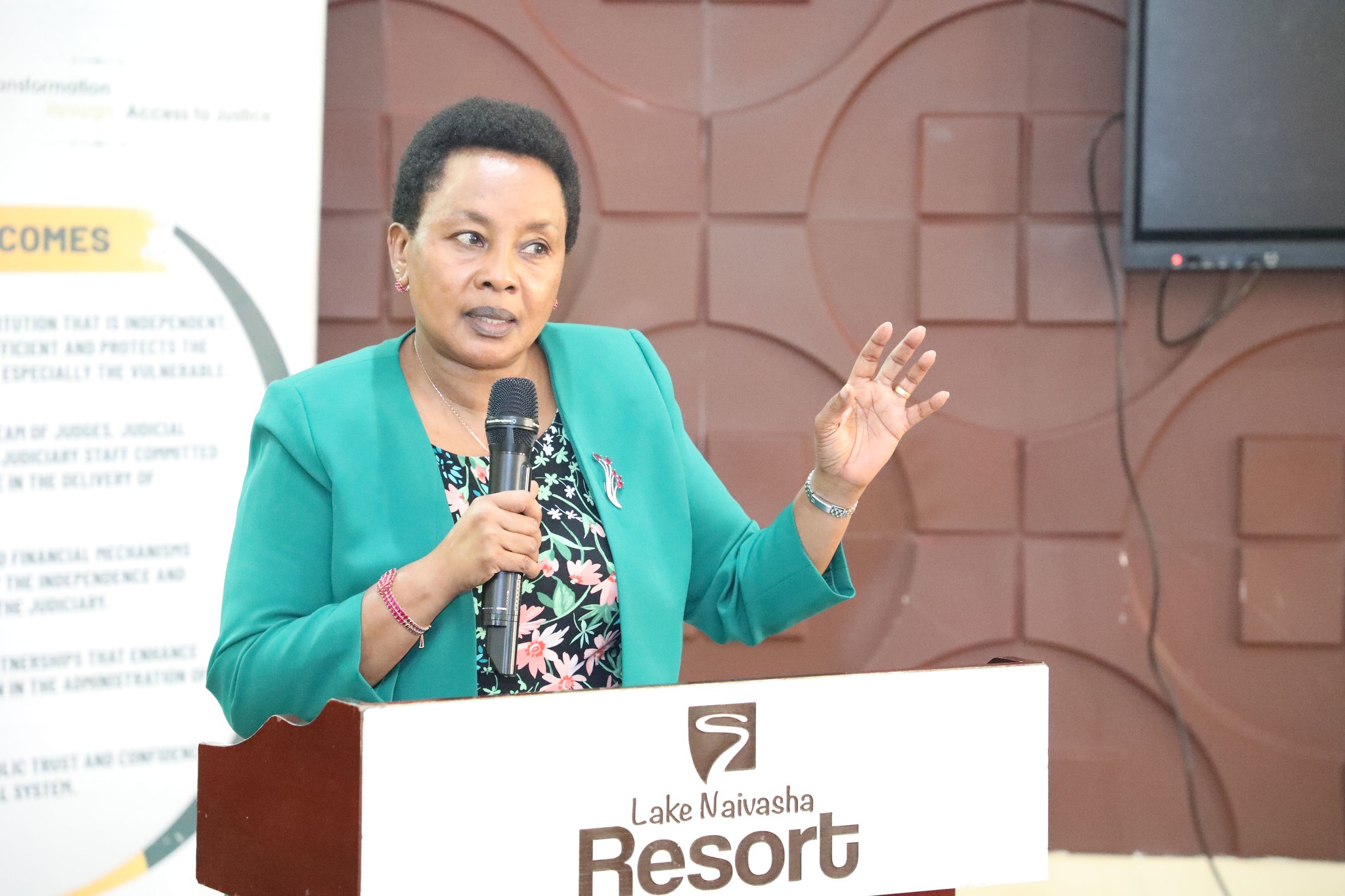15
November
0
Comments
INTEGRITY IS THE BEDROCK OF PUBLIC TRUST – DCJ MWILU

Deputy Chief Justice, Hon Lady Justice Philomena Mbete Mwilu, has underscored the place of integrity in securing public trust and confidence in the Judiciary.
“Integrity is the bedrock upon which public trust rests. Without integrity, no amount of innovation, policy reform, or institutional investment can sustain the Judiciary.” Said the DCJ while giving the closing address to the Judiciary Management Team retreat.
She added that “At the heart of everything we do lies one powerful truth: the moral compass of the Judiciary is calibrated by our collective integrity. Doing the right thing— even when no one is watching, even when it costs us—is the ultimate measure of our leadership.”
She stated that, “When we do the right thing, we give meaning to justice itself. Let us be unwavering in our honesty, principled in our management of resources, and deliberate in upholding the dignity of the offices we hold.”
DCJ Mwilu highlighted the role of administration in supporting justice. “Our Judiciary exists for one primary purpose: to hear and determine cases fairly and efficiently; to address the justice problems facing Kenyans. Every administrative function, every management process, every policy we design must converge at the point of supporting this core mandate.”
“We must remind ourselves that judges and magistrates, courts and tribunals, sit at the very heart of justice delivery. The rest of us—registrars, directors, managers, and staff—exist to ensure that their work is unhindered, well supported, and efficient. When we strengthen systems around them, we strengthen justice itself. When we eliminate bureaucracy, when we streamline communication, when we ensure proper resourcing and logistical support, we are not just managing – we are enabling the promise of justice to reach every Kenyan.” She asserted.
The Deputy Chief Justice called for alignment of all operations with the Judiciary vision espoused in the Social Transformation through Access to Justice (STAJ) blueprint. “The retreat was held under the theme ‘STAJ: Assessing Progress and Aligning Priorities.’ It reminds us that STAJ, our institutional blueprint, is not merely a policy document. It is a living vision that continues to guide how we think, how we plan, and how we serve our fellow Kenyans.”
“STAJ is not merely a strategic plan; it is our institutional compass—our collective commitment to ensure that every Kenyan, regardless of circumstance, and particularly the marginalised and vulnerable, find justice accessible, affordable, and fair.” DCJ Mwilu said.
She called on the team to advance in unity towards a common goal. “Integrity and professionalism must not only define our work—they must define our relationships. The Judiciary’s culture should be one of humility in leadership, openness in communication, and empathy in management. Let us build an institution that genuinely reflects the justice it proclaims.”
The DCJ highlighted the role of performance management in improving service delivery. “You reviewed the Performance Measurement and Management Understanding (PMMU) reports and tools—reminding us that accountability is not punitive, but a mirror reflecting how far we have come and where we must improve.”
She further touched on embracing technology as an enabler of justice. “Your sessions on ICT, on the revised ICT Masterplan, the Electronic Document Management System, and the Proposed Situation Room, and other emerging technologies, reaffirm the central role technology and artificial intelligence, will play as instruments of transformation, designed to make justice faster, smarter, and more transparent.” Adding that “We must not implement interventions for their own sake; our strategies must be based on what the evidence and data are telling us, they must be contextually relevant and locally impactful.”
“The retreat has given the Management Team an opportunity to reflect on our responsibilities in supporting the Judiciary as the custodian of justice and integrity in Kenya. It has left you all better placed to ensure that our management systems are more responsive, your leadership more accountable, and our institutional culture strengthened towards excellence in service delivery.” DCJ said.







